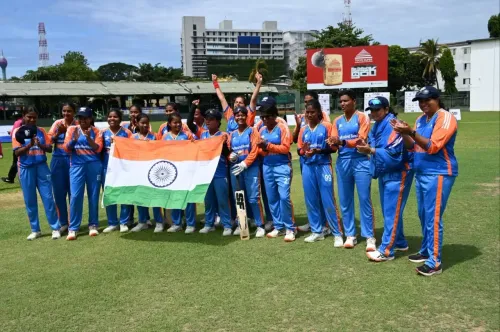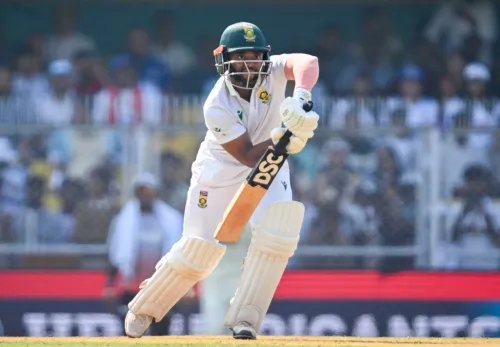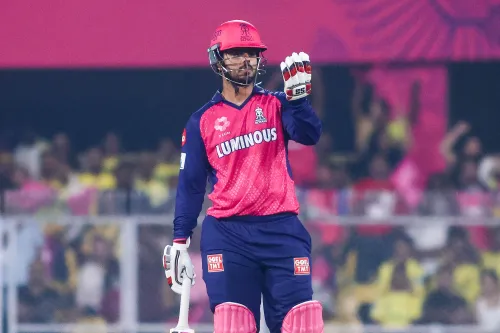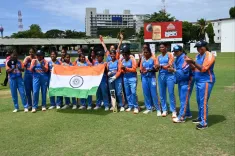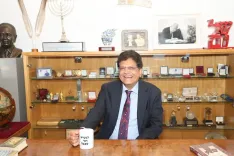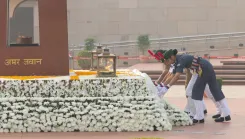Did Khawaja's Golf Round Cause His Back Spasms?
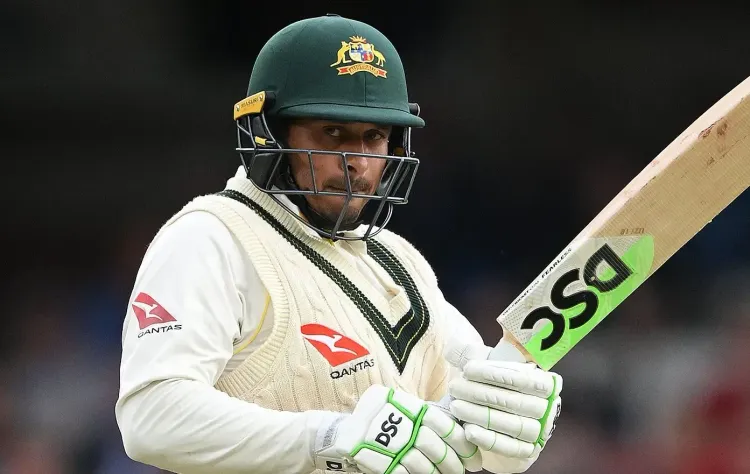
Synopsis
Key Takeaways
- Todd Greenberg denies any link between Khawaja's golf and his injury.
- Khawaja's back spasms are a new injury, unrelated to prior activities.
- The team successfully adjusted batting order due to Khawaja's situation.
- Cricket players often engage in leisure activities like golf before matches.
- Performance evaluation will focus on the entire series.
Perth, Nov 22 (NationPress) The CEO of Cricket Australia (CA), Todd Greenberg, has refuted any connection between Usman Khawaja's choice to engage in a round of golf prior to the ongoing first Ashes Test and the back spasms he experienced during the first day of play.Khawaja, who is 38 years old, had to leave the field late during England's first innings on Friday. Although he returned before the innings concluded, ICC regulations dictated that he hadn't been on the field long enough to qualify to open the batting.
This led to Marnus Labuschagne being elevated to open alongside debutant Jake Weatherald, while captain Steve Smith was positioned at number three. Khawaja eventually batted at number four but only managed two runs. On the second day, he fielded without any issues.
CA has clarified that Khawaja's spasms are a new injury for the player, who will turn 39 next month, and are not linked to his golf sessions before the match. "Playing golf has been beneficial for him over the past couple of years. It's not unusual for many players to play golf a day before a match," Greenberg stated.
"Did that have anything to do with the issues? Personally, I don't believe so. Usman is an experienced player, well aware of his own body and how to prepare for cricket. I think that's a stretch. Many say cricket is a mental game."
"Spending some time away from the hotel or training is vital. I saw Mitch Starc played golf with him, so it clearly didn't affect his performance," Greenberg added during his interview on SEN Radio on Saturday.
Furthermore, he emphasized that Khawaja, along with the entire Australian squad, will ultimately be evaluated based on their performances throughout the five-match series, highlighting that the players are allowed to prepare in ways they believe suit them best.
“That’s how Andrew McDonald and the team have operated for quite a while, and they have found great success with it. Individual performance within a team context is crucial, and ultimately, players must be accountable for their performance. This approach is mature and reflects our current philosophy,” he concluded.

